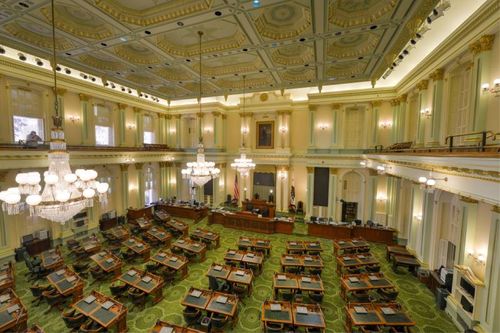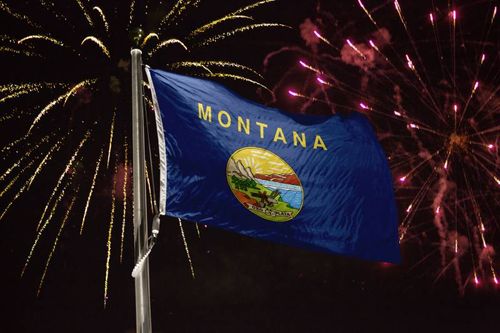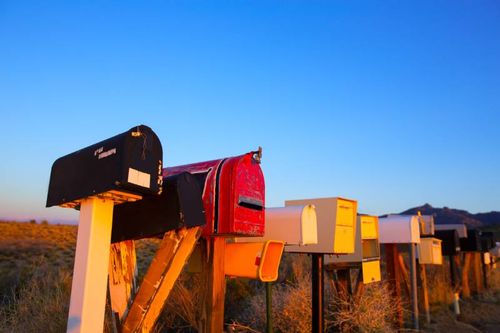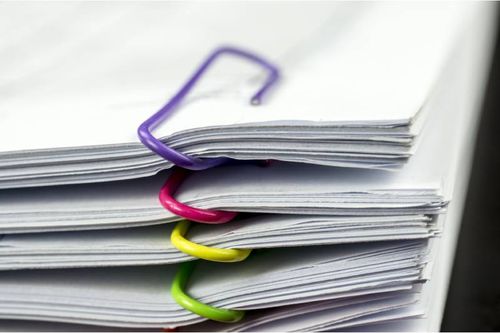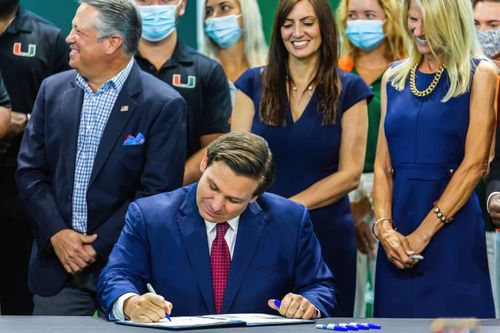A new rule from the Drug Enforcement Administration (DEA) threatens to upend the American hemp industry, and could even result in criminal prosecutions for manufacturers of CBD and delta-8 THC products.
The DEA says the “interim final rule,” issued Aug. 20, is simply a matter of adjusting its own regulations to account for changes to the Controlled Substances Act that were mandated by the 2018 Farm Bill (or Agricultural Improvement Act) that legalized hemp and CBD production. The new rule “merely conforms DEA’s regulations to the statutory amendments to the CSA that have already taken effect,” says the agency. The new rule doesn’t break any ground, according to the DEA.
But many experts on cannabis and hemp law say the DEA rule creates a potential pathway the law enforcement agency could use to prosecute hemp processors and producers of CBD (cannabidiol) and delta-8 THC (or Δ8THC) products. There are two issues: partially processed CBD, and “synthetically derived” delta-8 THC.
Why the DEA rule threatens the CBD industry
North Carolina-based cannabis attorney Rod Kight was among the first to question the purpose of the DEA’s new rule, pointing out that the agency has been the primary force behind the “War on Drugs” that began in earnest during the Nixon administration in the early 1970s. The 2018 Farm Bill removed hemp and all of its constituents from the Controlled Substances Act (CSA), which means the DEA has no enforcement authority over hemp growers and producers—with one exception.
The exception is hemp that contains delta-9 THC in a concentration greater than 0.3 percent by dry weight. The problem occurs when the heaviest parts of the plant—the woody stems and stalks, which are low in cannabinoids—are removed, and the cannabinoid-rich flowers and leaves are separated for CBD extraction and processing.
Partially processed hemp (called in the industry “work in progress hemp extract” or WIPHE) may temporarily contain a higher percentage of delta-9 THC than the plants it came from. Even though it is not sold in that state, and the percentage of THC falls below the legal limit when the product is mixed and packaged, the new rule threatens CBD producers because the DEA specifies that hemp-derived products must remain below the 0.3 percent limit at all stages of possession.
The DEA rule states that “a cannabis derivative, extract, or product that exceeds the 0.3% D9-THC limit is a schedule I controlled substance, even if the plant from which it was derived contained 0.3% or less D9-THC on a dry weight basis.”
WIPHE, says Rod Kight, is “a necessary component of all consumer hemp/CBD products. By taking the position that it is an illegal controlled substance, the DEA is pulling the proverbial rug out from under the entire industry.”
Theoretically a CBD processor could be arrested and prosecuted, because according to attorney Daniel Shortt, “under the DEA’s interim rule, the processor would be in possession of a schedule I substance, even if the processor dilutes the end product down to the requisite level of 0.3% delta-9 THC or destroys any delta-9 THC by-product.”
“[The DEA] has aggressively and persistently asserted itself into the hemp industry, despite the Farm Bill’s express removal of hemp, a lawful form of cannabis, from the CSA,” Rod Kight writes. “The issuance of today’s IFR…continues the DEA’s pattern of unwanted and aggressive interference with a lawful industry.”
The National Hemp Association, a trade group that promotes the expanding hemp industry, seems to believe that the DEA rule was issued in good faith, without the intention of trying to recapture regulatory authority over hemp and CBD. However, the NHA does recognize that the DEA may have its eye on delta-8 THC as a target for drug enforcement.
The DEA rule spells trouble for delta-8 THC
Naturally occurring cannabinoids in hemp plants are no longer regulated by the DEA. The 2018 Farm Bill gave authority to the U.S. Department of Agriculture (USDA) over all parts of the hemp plant, including “any part of that plant, including the seeds thereof and all derivatives, extracts, cannabinoids, isomers, acids, salts, and salts of isomers, whether growing or not, with a delta-9 tetrahydrocannabinol concentration of not more than 0.3 percent on a dry weight basis.”
Delta-8 THC, a close relative of the much more potent psychoactive cannabinoid delta-9 THC, is becoming popular, and because there are very few hemp strains that contain enough delta-8 to bother extracting, most Δ8THC is produced by applying a chemical catalyst to naturally occurring CBD. The delta-8 THC that results could be defined by DEA as “synthetically derived,” according to cannabis attorneys.
The DEA insists that the Farm Bill does not challenge the agency’s continuing authority over any cannabinoid that is “synthetically derived.”
The DEA insists that the Farm Bill does not challenge the agency’s continuing authority over any cannabinoid that is “synthetically derived.” Whether it originates from a marijuana plant (cannabis with delta-9 THC in a concentration greater than 0.3 percent) or a hemp plant (under 0.3 percent delta-9 THC), if it is created using a chemical process, the DEA says it is a Schedule 1 narcotic.
“For synthetically derived tetrahydrocannabinols, the concentration of delta-9 THC is not a determining factor in whether the material is a controlled substance,” says the DEA rule. “All synthetically derived tetrahydrocannabinols remain schedule I controlled substances.”
“In light of the DEA’s historical control of cannabis,” writes attorney Nathalie Bougenies, “and its lack of enthusiasm in the legalization of hemp—USDA Secretary Sonny Perdue has repeatedly blamed the DEA for interfering with the development of hemp regulations—it is clear that the Rule is a pretext for the DEA to maintain its authority over cannabis.”
What can CBD consumers and the hemp industry do?
According to the DEA, the rule is in effect already, so it’s possible that CBD and delta-8 producers could be arrested and prosecuted right now, and their property and bank accounts seized. However, there is a 60-day public comment period (which ends Oct. 20), and it’s unlikely that the agency would attempt to initiate enforcement actions until it reviews public comments and publishes a final rule that addresses industry and consumer concerns.
Industry stakeholders and consumers of both CBD and delta-8 THC should comment on the DEA docket, and contact their U.S. House representatives and Senators to complain about the DEA’s pointless attempt to keep the drug war alive.
RELATED


Smokers created vaping without any help from the tobacco industry or anti-smoking crusaders, and vapers have the right to keep innovating to help themselves. My goal is to provide clear, honest information about the challenges vaping faces from lawmakers, regulators, and brokers of disinformation. I recently joined the CASAA board, but my opinions aren’t necessarily CASAA’s, and vice versa. You can find me on Twitter @whycherrywhy


